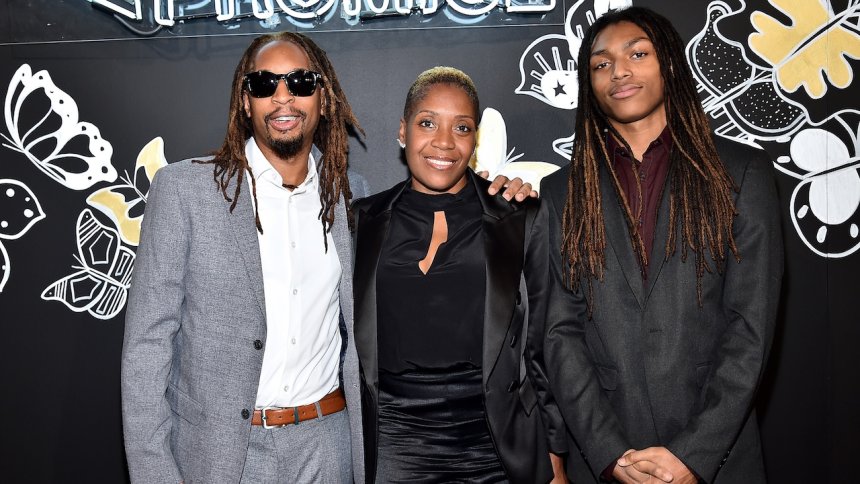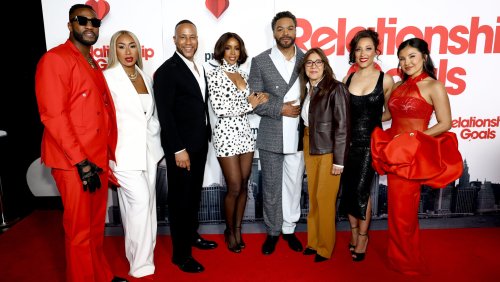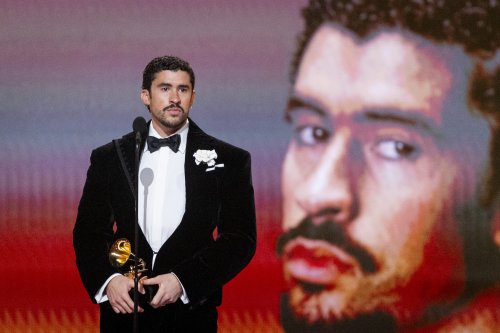Filmmaker Sea Mahsati brings Black stories and futures to life with ‘Other Suns’ immersive film screening
Film festivals were hard to get into – so this independent Black movie director innovated with their “Other Suns” film
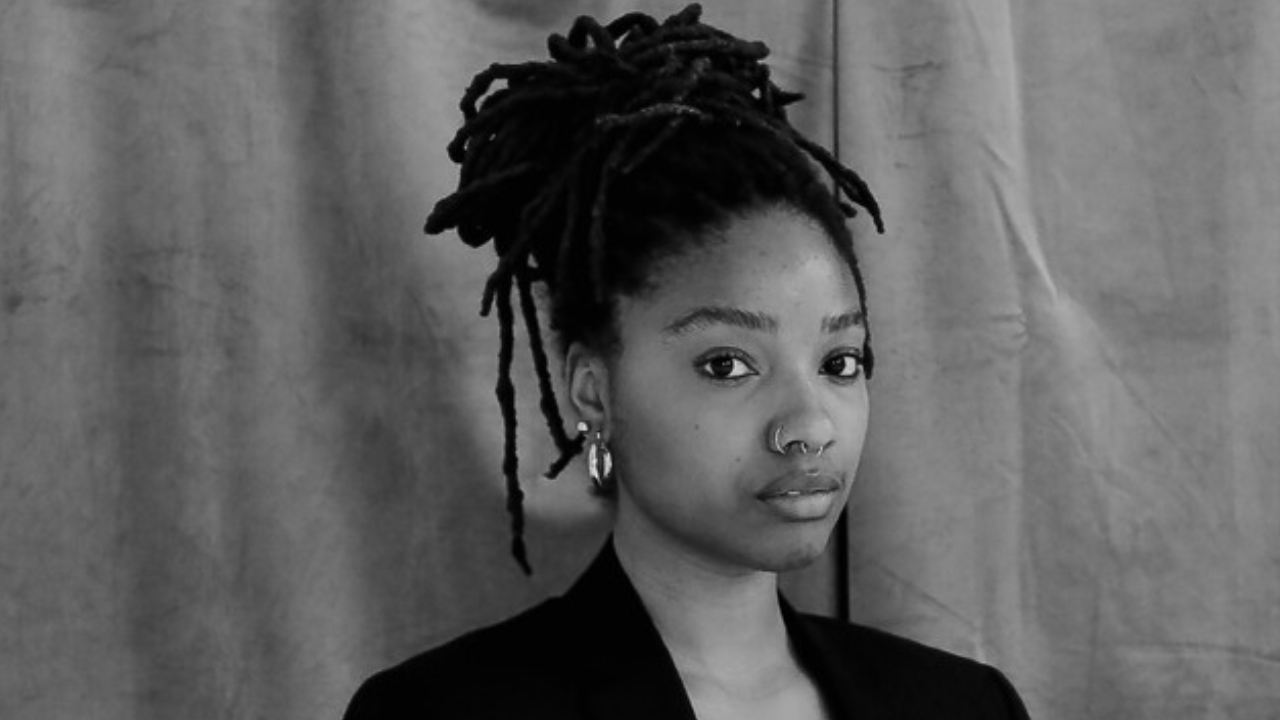
Film festivals were hard to get into – so this independent Black movie director innovated with their “Other Suns” film event in Washington, D.C. to showcase liberatory storytelling and promote Ancient Well Productions, a powerhouse film and creative house.
Sea Mahsati didn’t need anyone’s permission to find an audience of movie lovers.
On the rooftop of the MLK Library in Washington, D.C., on a Saturday in September, with the capital city under federal occupation outside, there was a safe hideaway. A crowd gathered to witness the award-winning writer, producer and filmmaker’s sold-out immersive screening entitled, “Other Suns,” which featured three short movies centering the lives of Black people and culture, inspired by ancestral wisdom and Afrofuturistic vision.
The event was their brainchild and a response to a film festival culture that can gatekeep rising talent, including Black independent filmmakers.
“It was a dream of mine to be able to share my work with my community,” Sea told the crowd at Other Suns. “It was something that I decided to do because at the beginning of the year, we weren’t getting into any festivals. Film festivals [are] notoriously challenging to get into. And I said, ‘You know what? I’m going to create an opportunity for myself.’”
Sea, a former public health professional and birth doula, is currently pursuing their MFA at Howard University, having pivoted careers to ignite change with visual mediums.
“I started writing scripts for fun,” they said. “And I was like, ‘Oh, it’s just a cool thing. I’ve always written stories. Why not? And I was like, you know what, I think I want to see these films.’”
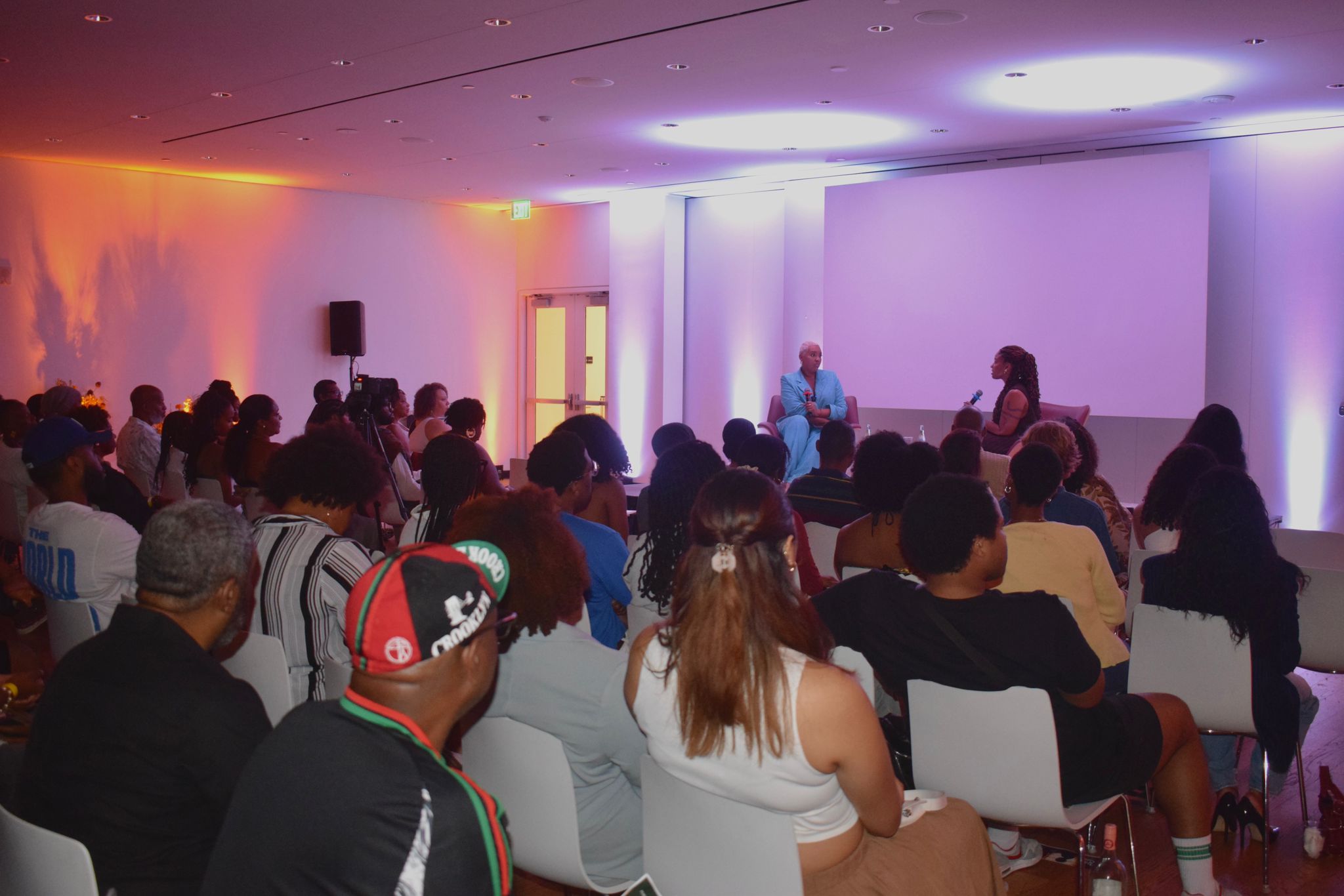
Sea had worked with their Ancient Well Productions team (a creative house which they describe as “Saint Heron meets A24”) to shoot and produce films that center “liberatory storytelling,” taking place in the Deep South and across the ocean on the continent of Africa.
Their first short film, entitled, “Edge of This River,” incorporated painful flashbacks to devastating flooding from Hurricane Katrina in New Orleans’ Black communities, and a fictional world in which floods have become so regular that the main character, Mara’s survival is in question.
Sea says the idea came from a character’s statement in the book “Tiger Work” by Ben Okri.
“She asks the question, ‘Will we end up living under the sea? And that one line, I was like, oh, there’s a story to be told,’” they remembered.
Sea artfully weaves messages about the power and vulnerability of nature with Mara’s journey to decipher messages about water survival she thinks are coming from an ancestor.
“All of these works, it was just the moment of time that I was in that I really felt it was necessary to talk about water and the fact that it’s rising so quickly,” Sea said. “And what is our relationship to that? I’m interested in very mythic work. And so I wanted to see kind of what could it look like if we had to live underwater? What can our ancestors say to us in this particular time living on a planet in transition?”
Films With Ancestral Roots
The water connection translated over to Sea’s other short film “Keur Simbara,” which focused on a group of women in Keur Simbara, Senegal, who have built a cooperative, female-led community and economy while struggling with drought. Sea initially planned to film in a different part of Senegal but was met with political upheaval that made it impossible to film.
“I will say, actually, it took me a minute to pivot,” Sea revealed. “I’m someone who once I have my mind on something, I have to do that thing. I’m really glad that I did, because that story, their issue with water scarcity and the way they’re approaching it is incredible.”
With moving reflections and first-person stories, Sea’s team, which includes rising talent and producer Vashni Korin, shows how the women of Keur Simbara embody softness, strength, and unshakeable sisterhood through trials.
But it was the film “Tobacco Road,” also screened at “Other Suns”, that hit at the heart of the Black American migration experience. It explored a reverse migration south that takes a father and daughter duo down a painfully beautiful ‘road’ of memories. Only one of them has a one-way ticket to the South, and it’s both a surprise conclusion and inheritance that finds them in the new home. 
Produced by Sea and written and directed by Kiara Danae Mangum, who returned to her actual hometown in rural North Carolina to film the story, “Tobacco Road” struck a deep chord.
“This story was born out of my own reflections on identity, grief, and the need to reconnect with nature, family, and the parts of ourselves we sometimes lose in transition,” Mangum said.
With stirring aromas in the air blending with DJ’ed sounds of hip hop and soul music, guests dined on tasty Afro-diasporic bites from Black-owned restaurants and reflected on the films’ meanings. Sea floated through the crowd, their curled locs flowing and arms open, embracing hugs from attendees, which included actors from the films, other creatives in the Howard University community, and most importantly, their family.
What may have been missing in the mainstream film scene, Sea embodied in Chocolate City—the same city where actor and director Chadwick Boseman once studied on The Hilltop and “Selma” director Bradford Young studied film. “Other Suns” was legacy-building in practice, joining a community of disrupters who know movies are about more than making money.
“There are a lot of [filmmakers] who are subverting form right now,” Sea told theGrio. “They are taking what is conventional in film and they’re flipping it on its head.”
“I think that’s where the healing aspect comes in… people of the global majority are constantly trying to find ways to communicate with each other that are direct, that only we can understand and hear. And I think that’s what those filmmakers are doing.”

Share
What's Your Reaction?
 Like
0
Like
0
 Dislike
0
Dislike
0
 Love
0
Love
0
 Funny
0
Funny
0
 Angry
0
Angry
0
 Sad
0
Sad
0
 Wow
0
Wow
0
